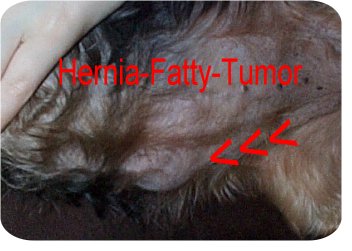Dog Heart Murmur
"Canine health problems"

Dog heart murmur, is there really such a thing? Is it fatal? Is it preventable? Pet health problems can be very stressful especially when hearing your dog has a heart murmur. Find the answers about your canine health problems here.
Some heart conditions that could affect your dog: heart murmur, congestive heart failure and defective heart development. Canine heart problems can range from mild to fatal in severity. Here we will discuss the condition, symptoms, treatment and prognosis for these problems.

Heart murmurs dogs
Heart Murmur: A dog heart murmur is an extra or unusual sound the heart makes in addition to the heart beat. A heart murmur will typically be found during puppy’s first check-up or during an annual exam in an older dog.
For most dogs a heart murmur is not a significant risk to its health. There are usually no symptoms or adverse affects. For an unlucky few this can indicate heart disease or congenital defects

After a dog heart murmur is detected there are a series of tests that can be performed to determine the severity of the condition. An electrocardiogram (ECG) is done to check the heart rate and to determine if there are any abnormalrhythms.
This can be followed by an echocardiogram, which is used to check the valves of the heart and detect any abnormality in heart function.
The vet may also choose to do chest x-rays to view radio-graphic images of your dogs heart to look for abnormalities of the cardio-pulmonary system. For reference these tests are commonly used to detect all heart problems.
Treating a dog heart murmur begins when it is determined treatment is necessary, most murmurs fade with age. Then when it is determined that treatment is needed, the age and health of the dog are evaluated for the possible success of treatment. Many heart murmurs can be repaired with surgicalprocedures to repair the heart.
Congestive Heart Disease: This is also called congestive heart failure (CHF)and has many known causes. These can be congenital defects, heartworm, degeneration of heart valves, cardiomyopathy, inflammation and disease of the pericardium and arrhythmia. Any size or breed can be susceptible to congestiveheart failure; however, large breed dogs are more likely to suffer from it.

Symptoms of a sick dog
There are two types of congestive heart failure, left-sided CHF and right-sided CHF. There are common symptoms for both but there are also singular symptoms for each.>
Left-sided CHF symptoms
Intolerance to exercise
Rapid breathing
Labored breathing
Coughing
Fainting
Right-sided CHF
Swelling of the abdomen and extremities due to fluid build up
Intolerance to exercise
Rapid breathing
Labored breathing
Coughing
Treatment for CHF is based on severity and can follow several therapy regimens. It can initially begin with a stay in the veterinary hospital for stabilization. To remove any excess fluid from the lungs a vet may use a needle to draw fluid off, this is called thoracocentesis.

Nitroglycerine paste may be a long term solution for treating CHF. Diuretics are used to encourage fluid elimination and make breathing easier. A low sodium diet and nutritional supplements are also used to treat this condition.
Defective Heart Development: Also referred to as congenital heart disease, this is heart issues that are hereditary and include holes in the heart, enlarged hearts and other deformities. Some of the most common congenital issuesare:
Hole in the Heart (Atrial Septic Defect)- This occurs when there is a hole between the two upper chambers of the heart. This can be repaired with surgery by using a catheter inserted in the leg or neck of the dog.
Patent Ductus Arteriosus* – *This condition occurs when a special blood vessel the heart that is supposed to close at birth fails to do so. This can be treated with a simple surgical procedure.
Dilated Cardiomyopathy (DCM) – This is enlargement of the heart. This condition is typically not detected until there are symptoms presenting. There is no cure for this condition but it can be treated with drug regimens thathave been proven to prolong the life of your dog.
With any genetic conditions it is imperative that these dogs not be bred to ensure these conditions not be passed to future generations.
Canine Kids











